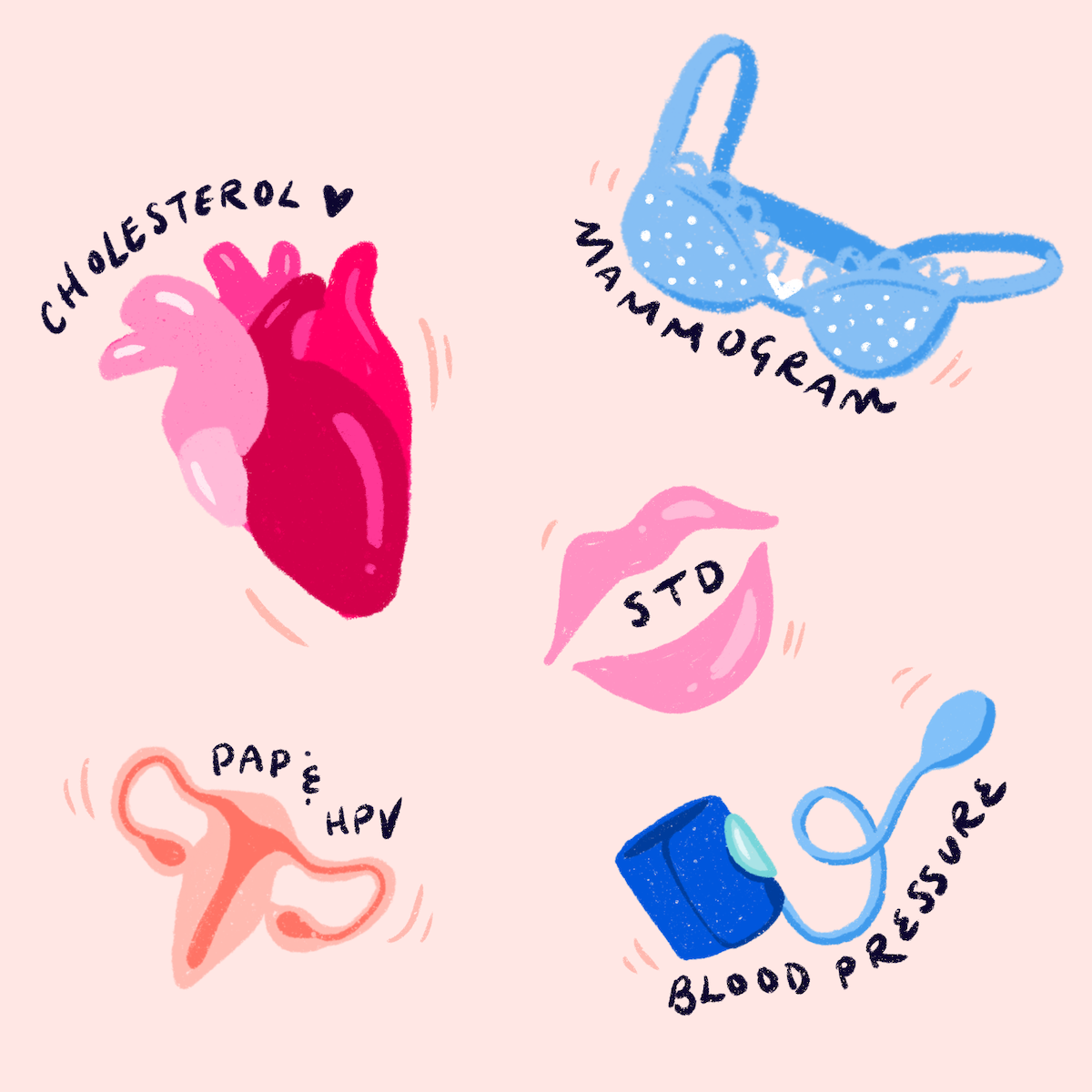5 Screenings Women Should Get Every Year
Start adding these screenings to your yearly check-ups
It can be easy to put our health on the back burner, especially after a worldwide pandemic. Although, avoiding preventative health screenings and yearly health check-ups with your doctor can be life-changing in a bad way. You can set yourself up for severe health conditions like heart disease, diabetes, and other life-threatening conditions by not doing your annual screenings. Read on to learn more about what preventative screenings could be proper for you to complete at least once a year.
Pap Test and HPV Test
Women over the age of 21 are usually no stranger to a yearly pap test performed by either your primary care provider or a gynecologist. But why is this test so important? This test can give you insight into your risk of cervical cancer and any other health issues. A Pap test isn’t only for those who are sexually active. It also tests for inflammation of your uterus, infection, abnormal cells, and precancerous cells.
On the other hand, an HPV test checks cells for infection with high-risk HPV types. According to Planned Parenthood, it is good to get an HPV test done every five years if you are between 25-65 years old. Be sure to check with your doctor to determine how often you should be receiving these screenings. It might vary based on family medical history and your current health.
STD Testing
Regular STD (Sexually Transmitted Disease) testing is crucial for your future, regardless of age or gender, if you are sexually active. National guidelines recommend that you get screened annually if:
You’re a sexually active woman under age 25
You’re a woman older than 25 and at risk of STIs — such as having sex with a new partner or multiple partners.
You have HIV
You’ve been forced to have intercourse or engage in sexual activity against your will.
It’s important not to assume that your doctor will test for STDs during your annual check-ups, so be sure to ask for the test to be done.
Blood Pressure
Blood pressure can be a silent killer because high blood pressure usually doesn’t have noticeable symptoms and can’t be detected without being measured. High blood pressure can indicate potential health risks like heart disease. Below are recommendations from the Mayo Clinic on how often you should get your blood pressure taken based on age and health risk:
People age 18 and older with normal blood pressure and no heart disease risk factors should have a blood pressure test at least once every two to five years.
People age 40 and older — or younger with an increased risk of high blood pressure — should have a blood pressure test every year. Risk factors for high blood pressure include obesity and being Black.
People who have chronic health conditions, such as high or low blood pressure or heart disease, may need blood pressure tests more often.
As always, consult with your doctor on how often your blood pressure should be taken to receive the best information based on your health history.
Mammogram
According to the American Cancer Society, about 1 in 8 women in the U.S. will develop invasive breast cancer during their lifetime. Receiving annual mammograms is one of the only ways to reduce the chances of higher-risk breast cancer by detecting cancer as early as possible. Nervous about scheduling your first mammogram? Read our blog on What to Expect at Your First Mammogram.
Cholesterol
When most people think of cholesterol, they might think mainly of older adults watching their weight or even their Cheerios box. But, cholesterol is essential no matter your age, especially for women. According to John Hopkins Medicine, “Approximately 45 percent of women over the age of 20 have a total cholesterol of 200 mg/dl and above, which is considered elevated — but a survey by the American Heart Association found that 76 percent of women say they don’t even know what their cholesterol values are.” Staying aware of your cholesterol levels will give you a better chance of living a healthier lifestyle. Talk to your doctor to learn more about how your cholesterol might affect your health.
Preventative screenings are your best defense against future severe health issues. The purpose of all 5 of these screenings is to assist women in taking control of their health. Looking to start scheduling your preventative screenings and learning more about the importance of screenings? Download the Cix Health app here and start your journey to better health.


